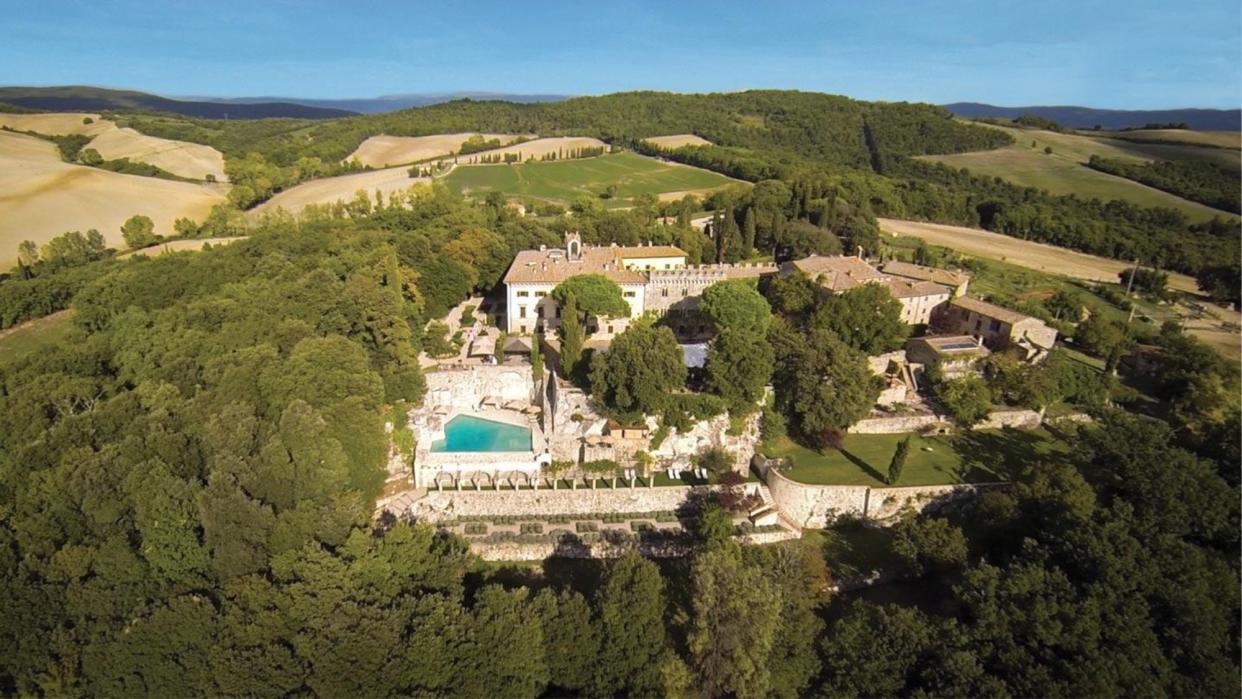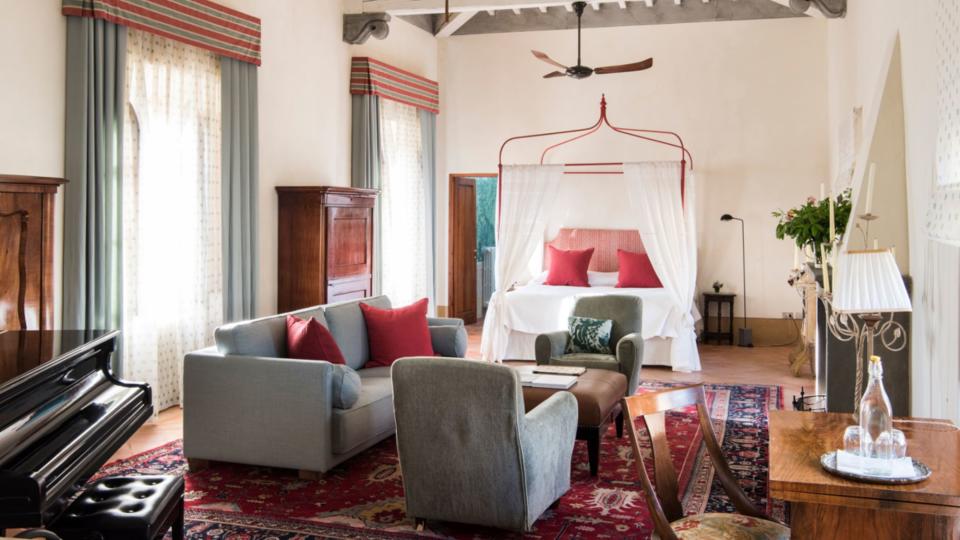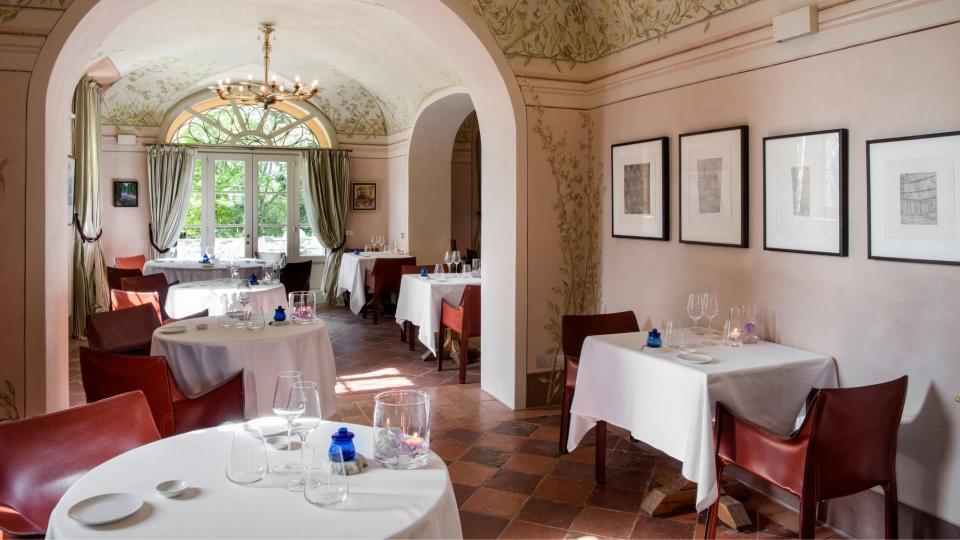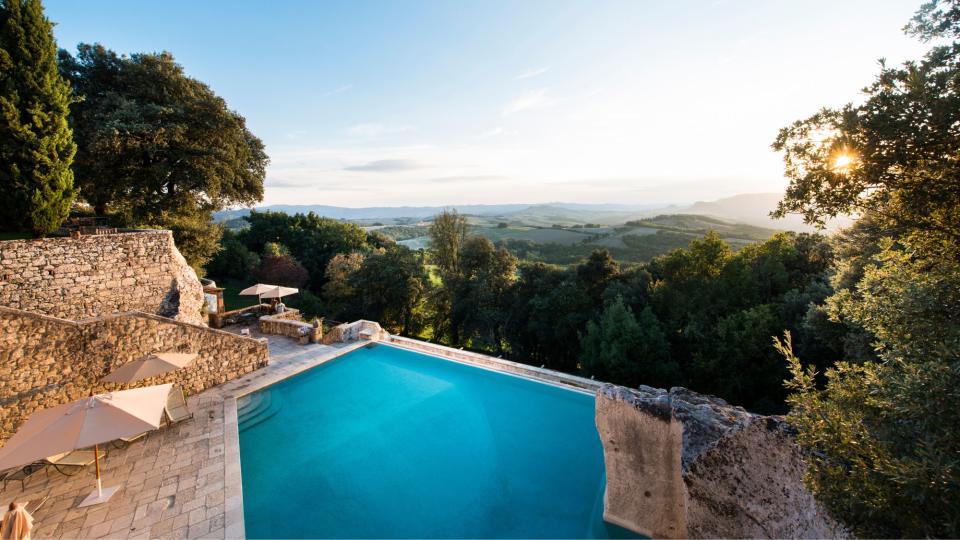Borgo Pignano review: a taste of Tuscan tradition and nature

On a generously warm October afternoon, life at Borgo Pignano is rural Tuscany in its essence. Not that I took it for granted. Like so much of Italy, this fabled region has felt the strain of intense tourism over the years, making calm, unspoiled retreats in its hinterlands feel like an increasingly rare find.
Why stay here?
Despite its sweeping premises somewhere between Florence and the Ligurian coast, Borgo Pignano offers the intimacy of a fine boutique hotel. It's elevated above 750 acres of its own undulating terrain in a collection of elegant limestone buildings, each weathered by centuries of the Tuscan elements. They are alive with the kind of period features to make hearts skip a beat. It's quietly luxurious, appealing to those who expect high standards but find beauty in imperfection. It's less for those who need to see their reflection in every surface and the lights to have half a dozen settings. A seasonal property, Borgo Pignano is open from April until the end of October.

Eating and drinking
So far, Villa Pignano is one of only 300 restaurants to earn a Michelin green star. That means almost everything you eat or drink here has lived, grown or been cooked where you can see and touch it.
That's the headline, but the team who made it happen isn't distracted by hype. If anything, they played it down when I discussed it in one of the hotel's most antique settings, a medieval-age dining room where a fire flickers next to thick, oaky communal tables. For them, the reward is the relentless purpose to their methods, not a fleeting moment of recognition. I want to call them conscientious originators. After all, why else would they choose to produce a youthful, fruity house red wine composed exclusively of native Ciliegiolo and Abrusco grapes in a region defined by Sangiovese?
These methods have a levelling effect on the dynamics between field and kitchen too. The organic menu, which is always confidently short, classic and flavour-first, is as much in the image of Borgo Pignano's gardener, Kirsten Bartels, as its executive chef, Stefano Cavallini. When I visited, an unseasonably warm spell had gifted the kitchen with a late crop of gorgeously mottled aubergines and tomatoes of all colours and shapes. Together, they were baked into a memorable Parmigiana di Melanzane. Mopped up with the pillowy house focaccia forged from locally milled grains and pressed olives, it was a soulful and deeply comforting expression of what Villa Pignano represents.

It was one of two dishes I'll try and fail to replicate at home for years to come, the other being a risotto made with the vineyard's sparkling rosé wine, chestnuts and fat beads of plump langoustine. Other than a few syllables of awe I was silenced, for once. Where the Parmigiana felt like a song of the soil and sun, this was the anthem of the artisan: a meditation on how carnaroli rice should coexist with heavenly flavoured liquids.
Not everything had me reaching for elaborate metaphors. A dish of sea bream with porcini and herb sauce lacked finesse, while the dining room itself felt curiously prosaic given its impressionistic setting. But Villa Pignano isn't driven by the quest for a "perfect" dining experience. Like the rest of the hotel, dining here is rhythmically imperfect. Tradition, nature and conscience is the experience.
Accommodation and facilities
Suites and villas are richly atmospheric time capsules of the Renaissance age. "La Canonica", a 13th century priest house, has been respectfully restored for modern living with a feather-light touch, so you can sleep under divine original frescos. The perfectly whimsical "Sala Musica" is complete with a billowing four-poster bed, grand piano and balcony views befitting of Florentine nobility. But nothing is a time-warp: eclectic modern art from The Royal Drawing School in London is an equally eye-catching modern inflection to its centuries-old walls.
Benefiting from its wealth of land, guest facilities go way beyond the expected. The opportunity to play five-a-side football, tennis, or horse ride on a single property is exceptionally rare. Almost as rare as Tuscany's most enigmatic export – the truffle – which grows under its woodlands in the damper months. With a licensed hunter and his two adorable canine experts, they can be unearthed in an invigorating adult treasure hunt. And there's the spectacular infinity pool, quarried into a rocky shelf from the steep limestone hillside on which the hotel perches, giving it a dramatic organic form.

The verdict
If overtourism has endangered the rural Tuscan fantasy, Borgo Pignano is a distinguished outlier. Insulated by acres of its own fertile terrain, it offers a retreat-like experience that's as relentlessly authentic as it is luxurious. The restaurant might be the flagship for its minimalist imprint, but everything about the hotel is finished with taste and subtlety.
Dominic Kocur was a guest of Borgo Pignano. Open from April to October, room rates start from €350 (£306/$374) per night based on two adults staying in the villa, on a b&b basis. Loc. Pignano, 6 - 56048 Volterra Pisa, Italy; borgopignano.com
Sign up for The Week's Travel newsletter for destination inspiration and the latest news and trends.

